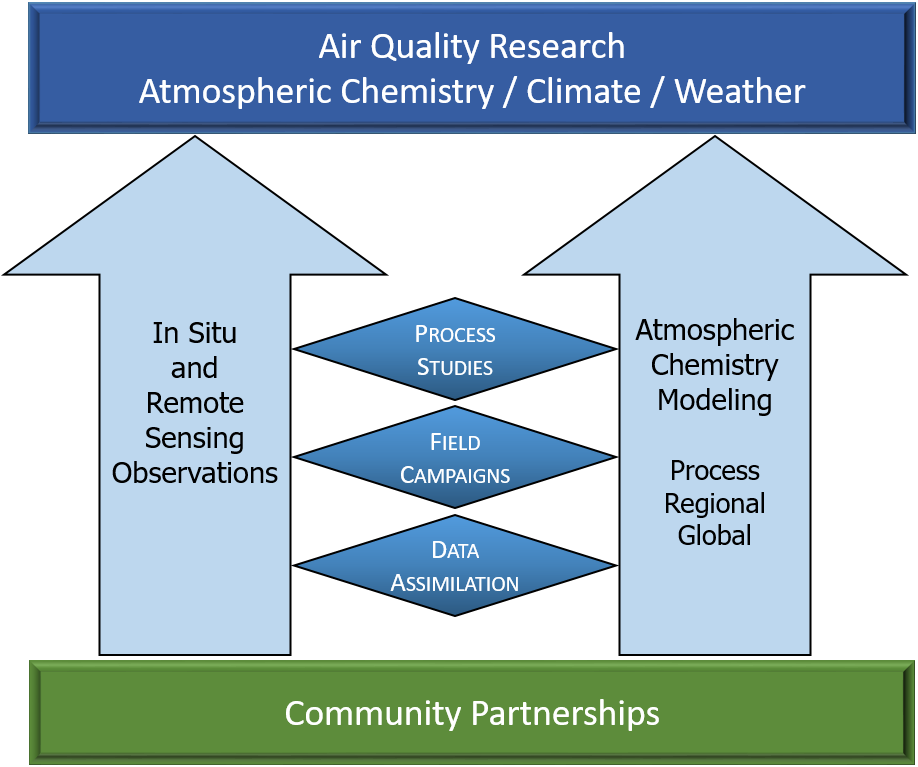Research Overview
|
|
The foundational science within ACOM is built upon In Situ and Remote Sensing Observations and Atmospheric Chemistry Modeling.
Integrating activities are based on process studies, field campaigns and chemical data assimilation.

These activities are founded on strong community partnerships, in the form of collaborative research, active visitor programs, plus education and outreach accomplished as an integral part of science activities.